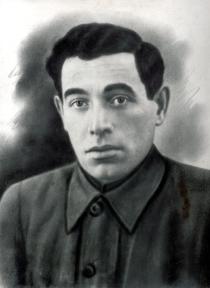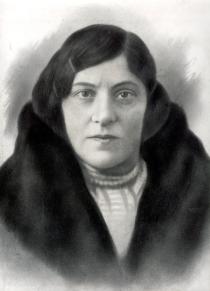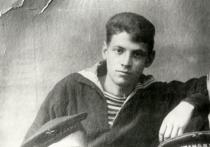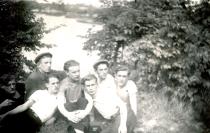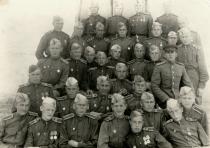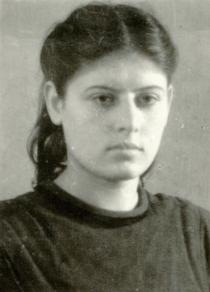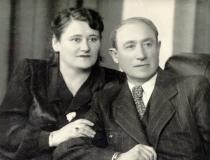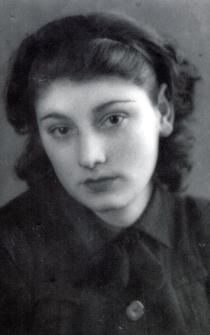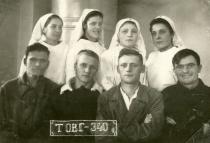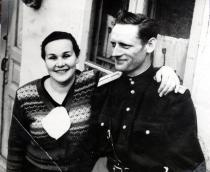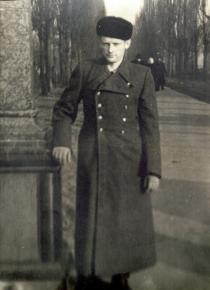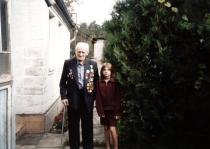I and my fellow cadets at the infantry school. I am the 2nd on the left in the first row. We are wearing military uniform. The photo was taken on Victory Day, 9th May 1945, in Ashgabat.
I moved to the front in the Kursk curve with the 9th Air Force infantry division. I was assigned to the company of the machine gunners of the division. We were trained and arrived at the frontline on 12th July 1943 at Stepnoy, and, later at the Ukrainian front. When we arrived there was action near Prokhorovka. Before my first battle I became a member of the Communist Party without thinking very much about it. The procedure was such that we were given party membership cards without any ceremonies. Everybody in the army wanted to become a party member.
On 16th July we were brought into action. I took part in the liberation of Ukraine from the fascists: I was in Poltava, Kharkov, Kremenchug, Dnepropetrovsk, Alexandria, Kirovograd and other towns. I was promoted to private first class and then junior sergeant. After the commanding officer of our platoon was killed, I replaced him. In Alexandria I was awarded a medal 'For Courage', and I received the order of the 'Red Banner' for the liberation of Kirovograd. The war was coming to an end.
In the spring of 1944 the commander of our division assigned me to be an orderly for Chief of General Staff Colonel Melnichenko. I was his orderly until May 1944. Then I was sent to a military infantry college. In Tashkent, Uzbekistan [2,500 km from Ukraine], we were told to get off the train and searched - they told us to give away our weapons and knives. I reached Ashgabat. I stayed there until the end of the war and served in the army for some time after the Great Patriotic War was over. 9th May 1945 [the end of WWII] was a great event. I was a cadet and we [men] had tears in our eyes. We hugged each other and were as happy as one can be. We were to become professional military and spent a lot of time doing physical training, learning about new military equipment and techniques. We lived in barracks - 40 cadets in one huge facility with bunk beds. I was the only Jew, but nobody cared about nationality. There were representatives of over 20 nationalities from all over the USSR.

